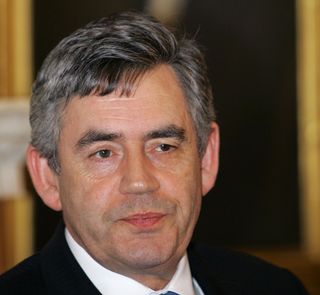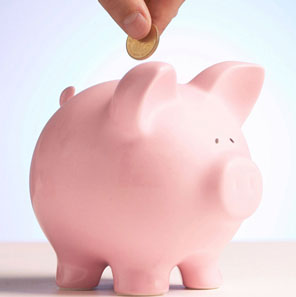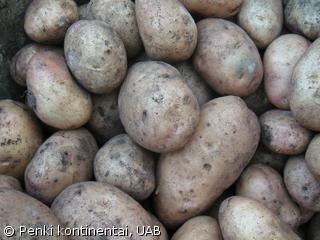The Investment Image program approved in August 2002 is aimed at increasing the country's investment rating and image
Published:
3 April 2003 y., Thursday
Foreign direct investment was very insignificant prior to 1994 at $100 million - $150 million a year. This then began to improve considerably and FDI in 1996 - 1998 was about $500 million - $700 million a year and continued growing.
Average annual foreign investment in the past three years was eight to ten times lower than in Kazakhstan, Hungary, Czech Republic, and Poland. Ukraine is close to last in Central and Eastern Europe in terms of per capita FDI, which is currently $111, nearly 10 times less than in Czech Republic, Poland, and the Baltic countries. The FDI index calculated by the United Nations Conference on Trade and Development (UNCTAD) each year places Ukraine 95th of 140 UN members (the index is a ratio of the share each country has in global FDI and its share in global GDP). This means that administrative bodies must pay closer attention to the country's investment appeal.
The country set up 11 special economic zones and nine priority development territories in the past three years that provide favorable conditions for foreign investors. The introduction of special conditions
investment in special economic zones and development territories reached nearly 7% of total foreign investment in Ukraine.
The Ukrainian president initiated efforts that dramatically improved the conditions for investing in the real sector. This included the introduction in the mid-1990s of perks for foreign companies and
agriculture. Ukraine also launched economic experiments in mining and metallurgy, shipbuilding, aircraft building, the cement industry, housing construction, the light and woodworking industries.
The investment appeal of industries began to improve after production stabilized and the economy began to grow. Almost all economic and social indicators have improved in Ukraine in the past three to four years: GDP, industrial output, agricultural production, production of consumer goods, and retail sales are increasing. This has helped create a favorable investment climate.
The Ukrainian president in early 2001 signed a decree on measures to attract investment to Ukraine that made this a priority. Another decree was signed that summer on measures to improve the investment climate that outlined tasks to simplify procedures and eliminate bureaucratic red tape in the registration of foreign investment. The government in December 2001 confirmed a program to develop investment in 2002 - 2010 and later confirmed measures to achieve this.
Šaltinis:
Interfax News Agency
Copying, publishing, announcing any information from the News.lt portal without written permission of News.lt editorial office is prohibited.
The most popular articles
 The future of Europe's troubled car market and 12 million jobs was under scrutiny Tuesday.
more »
The future of Europe's troubled car market and 12 million jobs was under scrutiny Tuesday.
more »
 Europe must take the lead in finding solutions to the global crisis at next week's G20 summit, British prime minister Gordon Brown told MEPs in a speech in Strasbourg on Tuesday that was warmly welcomed by leaders of the main political groups.
more »
Europe must take the lead in finding solutions to the global crisis at next week's G20 summit, British prime minister Gordon Brown told MEPs in a speech in Strasbourg on Tuesday that was warmly welcomed by leaders of the main political groups.
more »
 The US and Europe are in the worst economic crisis since the 1930s. With unemployment rising dramatically and businesses failing, fear is spreading.
more »
The US and Europe are in the worst economic crisis since the 1930s. With unemployment rising dramatically and businesses failing, fear is spreading.
more »
 Monday evening sees MEPs consider the emotive subject of food prices in Europe.
more »
Monday evening sees MEPs consider the emotive subject of food prices in Europe.
more »
 Shares in Wincor Nixdorf AG have fallen 3.5 percent and the ATM company says it is preparing to cut production hours.
more »
Shares in Wincor Nixdorf AG have fallen 3.5 percent and the ATM company says it is preparing to cut production hours.
more »
 Leaders agreed to use €5bn in unspent EU funds to upgrade energy and internet connections. And they raised the ceiling on EU aid to countries having difficulties.
more »
Leaders agreed to use €5bn in unspent EU funds to upgrade energy and internet connections. And they raised the ceiling on EU aid to countries having difficulties.
more »
 Charges on heavy-goods vehicles should be based in part on the air and noise pollution they produce, according to legislation approved by the European Parliament today.
more »
Charges on heavy-goods vehicles should be based in part on the air and noise pollution they produce, according to legislation approved by the European Parliament today.
more »
 EU agriculture officials are about to get a reality check. Starting next year, their on-the-job training will include a stint on a working farm.
more »
EU agriculture officials are about to get a reality check. Starting next year, their on-the-job training will include a stint on a working farm.
more »
 Privatisation, balanced budgets, low public deficits, and free trade have long been the mantra for prudent economic management.
more »
Privatisation, balanced budgets, low public deficits, and free trade have long been the mantra for prudent economic management.
more »
 Building roads and pipelines, ensuring food safety, improving education, fighting discrimination and boosting jobs are all funded from the EU budget.
more »
Building roads and pipelines, ensuring food safety, improving education, fighting discrimination and boosting jobs are all funded from the EU budget.
more »